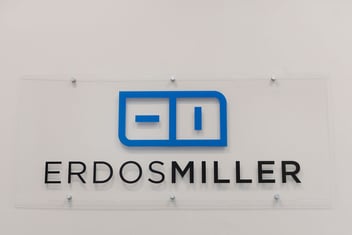How to Build a Better MWD Hand
What skills and experiences should we be looking for in new hires and what kind of training can we offer to make our hands better?
Background - what does MWD mean and what does it do?
For those of you that have not spent time on a drilling rig and aren’t familiar with directional drilling terminology, an MWD hand is responsible for assembling, programming, and testing the Measurement While Drilling (MWD) tool and monitoring its performance during the drilling process. MWD tools allow measurements to be taken downhole and transmitted to the surface. The primary purpose of this information is to determine the wellbore position and ensure that it is following the well path as planned. These tools can also transmit valuable information about the downhole environment as well as the geologic formation.
The MWD Role
The MWD role is somewhat different from other roles on the rig because it requires a unique combination of skills and experiences from several areas. An MWD hand must be competent in working with computers and electronics, proficient at record keeping and reporting, have a mechanical aptitude, and be willing to do some heavy lifting when needed. A typical MWD setup involves two or three computers running multiple software programs and all these programs, from different vendors, must be communicating properly and working in unison. Most MWD tools utilize the rig’s mud circulating system as their communication line, this is another system that must be working properly for successful MWD operations. Keeping all these plates in the air requires a wide variety of skills and experience.

A Day in the Life
A good day in the MWD world is a day when everything is working as it should. This means many feet are drilled, many surveys are sent, and all is peaceful. However, there are many things that can go wrong, many degrees of seriousness, and time spent on issues that may pop up. Some lesser issues could be minor paperwork differences or formatting changes for emails or logs. More serious complications occur when computer systems refuse to communicate with each other which can result in hours of troubleshooting, support calls, and finger pointing over which system is causing the trouble. The most serious issues occur when the drilling process is interrupted, this could mean having to recycle the pumps to restart the MWD tool, pump problems, mud problems, downhole issues, or MWD tool malfunctions. Just like the other issues, these can be handled in a few minutes, or it may be something that the MWD hand will be fighting for hours.
What Experience Benefits an MWD hand
We have looked at what an MWD tool is, the role of the MWD hand and what they can experience day to day. It goes without saying that previous oilfield or directional experience is a huge advantage since this prior knowledge can greatly assist in troubleshooting and smoother day to day operations. Many jobs outside of the oilfield can involve skills and knowledge that can transfer in to the MWD world. Having worked with computers previously can be an advantage when trouble shooting surface system issues. Electricians, mechanics, engineers all have skills and knowledge that could aid them in some area of the MWD field.
Training to Better Hands
Now that we have looked at the kind of experience, skills, and knowledge that benefit MWD hands, lets examine the types of training that could be offered to make our MWD hands even better. In a perfect world all MWDs would get some degree of training in the laundry list of areas that can affect their tool. To be fair, the bigger MWD companies offer a more robust training experience than the smaller businesses. For most companies though training can be costly and difficult, not only because of the cost of the classes but also because of the logistics involved. For this reason, companies should take advantage of the classes and demonstrations that their vendors have to offer. Most vendors will offer to give demonstrations or classes to promote their product.




